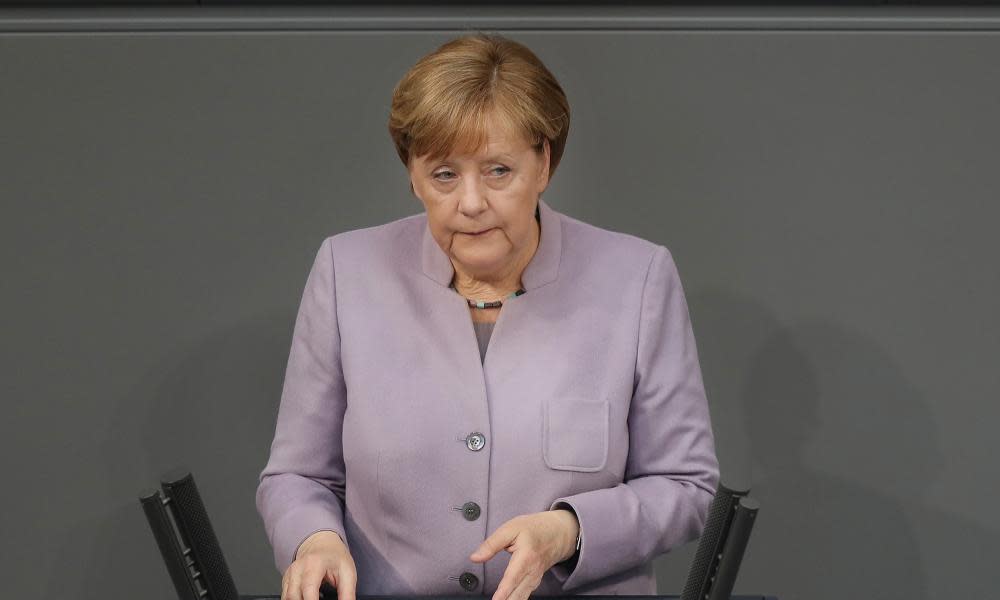EU leaders to insist UK pays its Brexit bills as precursor to trade talks

EU leaders will toughen their stance on Britain paying its Brexit bills when they agree negotiating guidelines at a special summit on Saturday.
EU diplomats have agreed unanimously that Britain must settle its bills before embarking on trade talks. The position has been set out by EU leaders from the German chancellor, Angela Merkel, to the EU’s chief negotiator, Michel Barnier, but this will be the toughest statement yet from all 27 countries.
“Member states are maximalist on the budget issue, because if Britain doesn’t pay, other member states will have to pay,” an EU diplomat said. Another senior diplomat said he had never seen net payers and recipients “working so closely with each other” in a wry allusion to the perennial tensions between countries that pay most into the EU budget and those that receive the biggest grants.
The UK is due to make a net payment of around £20.4bn into the EU pot in 2019-20, in line with a promise David Cameron made in 2012 when he negotiated the EU’s seven-year budget. The European commission, however, believes the bill could come to as much as €60bn (£50bn) once the UK’s contribution to EU liabilities, pensions and special funds is taken into account. Barnier’s team will not present a bill on day one of the talks, but instead hopes to bind Britain to a set of principles on paying its dues, an approach broadly backed by Germany.
EU leaders will not get into the specifics of money or the other two issues seen as essential parts of the divorce deal - citizens’ rights and the Irish border - on Saturday. They will focus discussions on what counts as sufficient progress for talks to start on trade. If they agree the UK has made progress on the divorce by the autumn, talks on a trade deal could start from early 2018.
Separate to the EU’s negotiating guidelines, the leaders will discuss a text that would affirm Northern Ireland’s right to join the EU if the island were to unite. Diplomats stress that they do not expect Irish unification.
In a letter to EU leaders ahead of the summit, the president of the European council, Donald Tusk, reiterated that the bloc would stick to its timetable. “We will not discuss our future relations with the UK until we have achieved sufficient progress on the main issues relating to the UK’s withdrawal from the EU,” he said. “This is not only a matter of tactics, but - given the limited time frame we have to conclude the talks – it is the only possible approach.”
EU leaders will also be briefed by Jean-Claude Juncker on his dinner with Theresa May at Downing Street earlier this week. Merkel was given the key points in an early morning phone call with the European commission president on Thursday. A few hours later she told German MPs that British politicians were still living under the illusion that the country could retain its rights and privileges after Brexit.
EU sources have different views on the British government’s approach to Brexit. Some detect a new tone coming from London, with one senior diplomat talking of “much more realism on the negative consequences of no deal”.
Others think London has not “engaged with reality”. One EU diplomat put the chances of the UK crashing out of the EU without a deal at higher than 50%. “They are not just on a different planet, they are in a different galaxy,” the diplomat said.
EU insiders are also uncertain about who Barnier will face across the negotiating table, whether it will be the Brexit minister, David Davis, or one of Theresa May’s top advisers. “I have no idea,” said one senior source.

 Yahoo News
Yahoo News 
